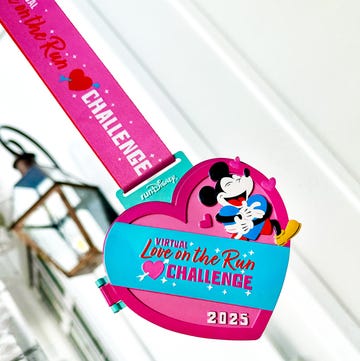What are the odds that the plaintiff could prevail here? And what does she want from Vibram
Collegiate Records Go Down at BU The Best 1 Mile Races to Add to Your Calendar for false advertising of its FiveFingers shoes, neither the attorneys for the plaintiff nor Vibram are divulging much in the way of details. To better understand the complaint, we asked John C. P. Goldberg, a professor at Harvard Law School and a recognized expert in tort law, to break down the 28-page document (PDF dowload) and offer his insight into the validity of the claim, what it means for Vibram, and what exactly the plaintiff is seeking.
What are the odds that the plaintiff could prevail here? And what does she want from Vibram? John Goldberg: The named plaintiff is Valerie Bezdek, a Florida resident. She alleges that she purchased a pair of Vibram FiveFingers running shoes in April of 2011. Her complaint further alleges that Vibram deceived consumers by claiming in advertising that FiveFingers shoes can deliver various health benefits to runners who use them, including, for example, reduced risk of foot injury and strengthened foot and leg muscles.
Next she alleges that these claims of health benefits are false, and that Vibram knew or should have known that they were false. Finally, she claims that she never would have purchased the shoes had Vibram not made these false claims. Thus, the gist of her claim is that Vibram illegally obtained an economic windfall from her — and other consumers, as discussed below — because it was only by making false health claims that Vibram induced consumers to buy FiveFingers shoes, and to pay more for them than they would have otherwise.
Based on the plaintiff’s claims, how valid is that complaint? JG: A complaint is merely a set of allegations. At this stage of the proceedings, a plaintiff is not required to have any proof of the allegations — if the proceedings continue, the proof will have to come later. So we don't know at this stage whether the plaintiff will be able to prove that Vibram's claims about the benefits of the FiveFingers shoes are false.
Assuming the allegations are proven, it is possible that they provide the basis for a successful lawsuit, though there are a number of procedural and substantive rules that might defeat this claim.
Is there a precedent for this sort of complaint? If so, what was that and to what degree does it impact the case? JG: There have been other prominent lawsuits containing allegations that a product manufacturer has unjustly obtained profits through false claims about their products. For example, consumers who purchased "light" cigarettes have sued the manufacturers for reaping a windfall by falsely claiming that light cigarettes are less dangerous to smokers' health than regular cigarettes. I am not aware of other suits specifically alleging deceptive claims about the health benefits of this style of running shoe.
[Editor’s note: In September 2011, the Federal Trade Commission ordered Reebok to pay $25 million in a settlement over their EasyTone and RunTone shoes. According to the FTC, Reebok “made unsupported claims in advertisements that walking in its EasyTone shoes and running in its RunTone running shoes strengthen and tone key leg and buttock muscles more than regular shoes.”]
Results: 2024 NCAA DI Cross-Country Championships? JG: There's a procedural aspect to the case that will probably make it difficult for the plaintiff to prevail. Although the plaintiff is suing on her own behalf, she is also attempting to sue on behalf of all persons in the U.S. who have purchased FiveFingers shoes for running in the last couple of years. In other words, she is attempting to bring a class action lawsuit. It is important to the lawyers representing the plaintiff that this suit be brought as a class action, because plaintiffs' lawyers are typically paid a percentage of any recovery. Thus, if they can recover damages on behalf of thousands or millions of consumers rather than just one, they will earn substantially larger fees.
A plaintiff, however, cannot simply decide on his or her own to bring a class action. There are legal rules for determining when a suit can be brought as a class action, and the court hearing the case must determine whether those rules have been met. Courts, led by the U.S. Supreme Court, have in recent years been very reluctant to allow class actions in this type of consumer fraud case, so there is a good chance that the court hearing this case will not authorize a class action, in which case the litigation may well be dropped because it will not be worth it for the plaintiff's lawyers to go through the expense of litigating in light of the expected recovery.
Does this at all seem absurd from the perspective of the law? If the plaintiff was unhappy with the pair of shoes, why wouldn’t she seek a refund rather than sue? JG: Again, we don't know if any of the plaintiff's allegations are true. But if they are true, her claim is not absurd. A number of states, including Massachusetts, have laws that are very protective of consumers. One might think that the better policy is for the law to adopt a "buyer beware" approach, and that consumers should be expected to discount heavily any seller's claim as to the benefits of its products.
But these laws do not adopt that position. Quite the opposite, they empower consumers to complain about deceptive practices, and put the burden on sellers to speak truthfully. The idea is that it is good for all of us to enable consumers to bring suits against sellers that engage in deceptive practices because it discourages those practices.
Nor is it absurd to suppose that a seller who makes a lot of money that it wouldn't have made had it told the truth should be required to disgorge those ill-gotten gains. So in substance the plaintiff's allegations are not absurd.
Again, however, the procedural posture makes things more complicated. I think most people in the position of the plaintiff would, if disappointed by their purchase, try to obtain a refund rather than sue. So at the individual level one might think that a lawsuit is an over-the-top response to a disappointing product purchase. Perhaps plaintiff sought a refund and it was denied?
Whether a lawyer or team of lawyers should be able to bring a claim on behalf of thousands or millions of consumers is even more controversial. Defenders of class actions say it is the only way to keep big companies honest. Critics contend that these kinds of lawsuits merely enrich lawyers. That's a large and complicated debate that has been going on for decades.
If this is a complaint and not a personal injury lawsuit, which the plaintiff’s lawyer say it is not, what could be the most likely reasons for the plaintiff to file this complaint? JG: The plaintiff's suit is careful to disavow any claim that she was physically injured as a result of using the FiveFingers shoes. Again, she is asking the court to take away from Vibram ill-gotten profits, and to distribute those gains to consumers who bought the shoes.
The reason the claim is framed this way is tied to the efforts of the plaintiffs' lawyers to get the court to authorize this suit as a class action. The courts have made very clear that they are not going to authorize class actions in personal injury cases. Such cases, the courts say, pose too many "individualized" issues for a class action to provide an efficient and fair resolution. For example, if this were not a suit seeking disgorgement, but instead a suit seeking damages for injuries caused by FiveFingers shoes, the plaintiffs' lawyers would for each claimant have to offer proof that that claimant actually suffered an injury, and that the injury was caused by the shoes rather than, say, a pre-existing condition in the plaintiff, or the plaintiff's misuse of the shoes.
The plaintiff's lawyers are hoping that, by focusing on Vibram's alleged wrongful gains, rather than on whom Vibram may have injured, they will be able to convince the court to authorize a class action. This is a smart tactic, but it is by no means guaranteed to succeed.













